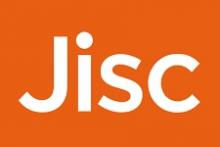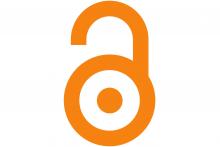Finding a third way to open access

Entrenched viewpoints on both sides of the open access debate risk leaving authors stuck in no man’s land, argues Rob Johnson
It is easy to set up straw men when it comes to open access (OA). On the one hand are those who believe all scholarly content should be free, with little regard for the value the publishing process adds. On the other are publishers, denounced as corporate entities prioritising the interests of shareholders at the expense of the research community.
Dig a little deeper and these binary distinctions quickly start to break down. Where should a learned society that relies on subscription revenues to fulfil its charitable mission sit on the issue? Or how do we accommodate the fact that the biggest of those corporate entities, Elsevier, is also one of the world’s largest OA journal publishers? Spend time with those on the other side of the debate, and you tend to find they are just as passionate about helping researchers get published as you are. They just have different ideas on how to go about it.
The view from the frontline
The lack of communication between different open access stakeholders has big implications for authors. A recent study for Knowledge Exchange found that researchers in six European countries sometimes take more than an hour just to pay article processing charges (APCs).
In response, many institutions have invested in their library support services and agreed to offsetting arrangements with publishers. Yet it would appear the message to authors is not getting through. Maurits van der Graaf, author of the Knowledge Exchange study, explains: 'Several respondents failed to mention the library as an information source about OA. In some interviews, it was opportune to mention offsetting deals arranged by the library, but quite often the respondent was not familiar with this development.'
This problem cuts both ways, with publishers also struggling to convey OA options to researchers. Take the Royal Society of Chemistry’s voucher scheme, for example. Van der Graaf notes that 'this voucher system hardly functions in the French institutions, as it is difficult to distribute the vouchers to researchers'. Add the requirements of funders into the mix, and it’s no wonder that many researchers are left dazed and confused when it comes to open access.
What the data tells us
Such a complex landscape clearly needs to be better mapped out, and there are areas where the fog is clearing. In 2009 (four years after introducing its OA mandate), the UK’s Wellcome Trust reported only a 35 per cent compliance rate. By 2016 this had risen to 91 per cent. Delivering this change took a lot of communication with authors, institutions and publishers. In 2015, Robert Kiley, Head of Digital Services at the Wellcome Library, announced a total of 4,016 email discussions with publishers over the previous decade.
In a 2016 article, Najko Jahn and Marco Tullney drew on cost data from the Open APC initiative to examine how much German research organisations spent on OA publication fees. Publication fees ranged from €40 to as much as €7,419. Meanwhile, institutions reported paying for as few as six articles, and as many as 2,800. Similar data-collection initiatives are underway at the UK’s Jisc and the Austrian Science Fund (FWF).
Unknown unknowns
These studies are as interesting for what they cannot tell us, as for what they can. Jahn and Tullney describe wide variations in APC fees at the same journal, and admit it is difficult to understand what lies behind these. Reporting mechanisms are also not yet mature: Jisc has admitted that it lacks data on APCs paid outside funder block grants, and the German study is based on self-reported data across participating institutions.
Stakeholders must work together
We are making progress in opening up published research, but we need to do much more to open up metadata and business processes. It is likely that the variations in pricing that stump institutions and researchers could be quickly explained by publishers, for example. Commercial concerns mean getting access to this information is not always straightforward, but organisations at the nexus between the different stakeholders are starting to facilitate this kind of data-sharing.
One example is CHORUS, which aims to deliver public access to content reporting on funded research. Leveraging publisher infrastructure, it has developed mechanisms to report on publicly accessible articles to funders and, now, institutions. Howard Ratner, CHORUS’s executive director, explains: 'Increasingly we have come to see that this is a three-legged stool, involving funding agencies, institutions and publishers. If you exclude any one of those the whole thing falls over.'
Another is Copyright Clearance Center (CCC), which is working to develop an 'institutional toolset' for gold OA. 'We realised that the data we gather from our publishers can be immensely valuable to institutions and funders,' explains Jen Goodrich, CCC’s director of product management. 'Our aim is to connect these different stakeholders through data-driven tools that can simplify workflows and increase efficiency.'
With so many organisations involved, these initiatives offer a way to bring different players together, and to ground the debate in real data. In politics, the ‘third way’ emerged as a synthesis of right-wing economics and left-wing social policies. Perhaps it’s time for us to embrace a ‘third way to OA’ – enabling us to harness the dynamism of commercial players in the interests of opening up research findings to the world.
Rob Johnson is a director of Research Consulting, a UK-based consultancy working to improve the effectiveness and impact of research and scholarly communication










